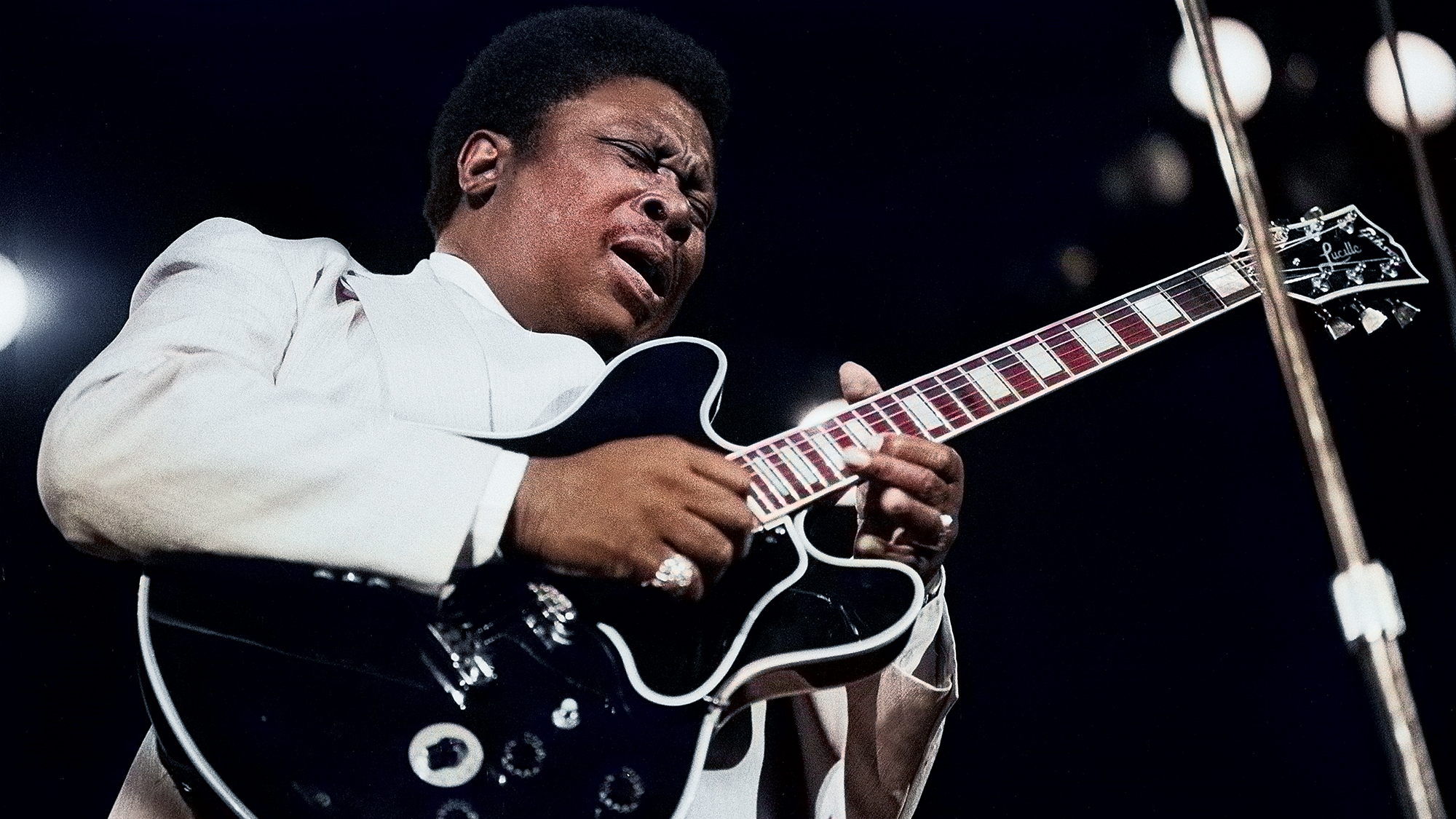“Brent’s accident changed not only him but Mastodon. I feel like that was the last record we did as a band that was complete.” Guitarist Bill Kelliher says "things were never the same" after Crack the Skye. The reasons are complicated
The guitarist also details the unusual guitars behind the group's 2009 breakout album
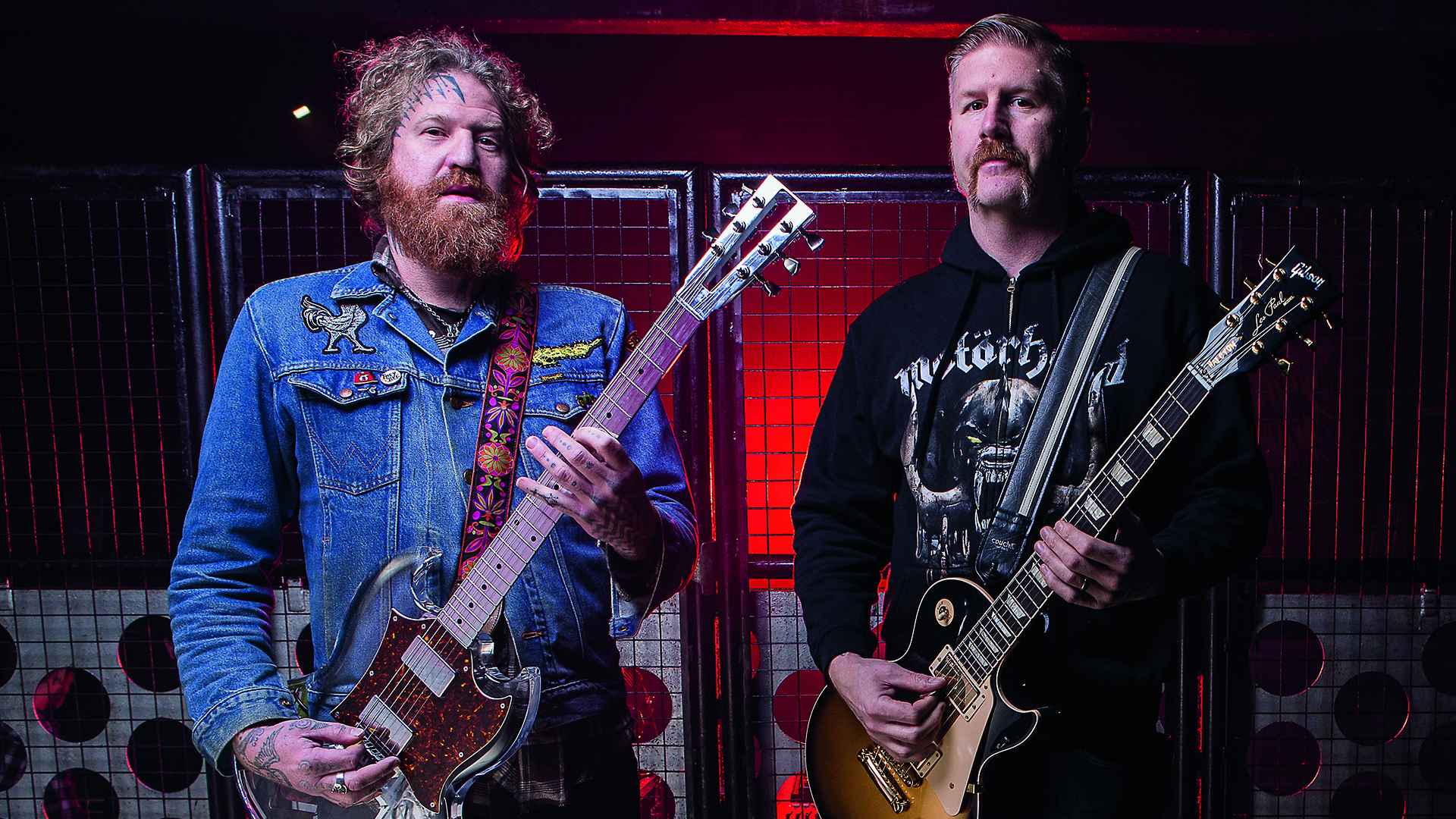
All the latest guitar news, interviews, lessons, reviews, deals and more, direct to your inbox!
You are now subscribed
Your newsletter sign-up was successful
Bill Kelliher has a sensory reaction when asked about Crack the Skye, Mastodon’s 2009 metal masterstroke that took the progressive-metal band to new heights.
“It’s like different smells,” he explains. "Your olfactory gland kicks in and you’re transported back to some other time. It’s kind of the same with Crack the Skye.”
For Kelliher, the time is 2008, and the place is Southern Tracks Studio in the group’s hometown of Atlanta, Georgia. “The studio is not there anymore,” Kelliher notes. "It’s gone. I remember hanging out in the kitchen, writing lyrics, having lunch, and hanging out at Southern Tracks. It just takes me down Memory Lane.”
Crack the Skye marked a new era in Mastodon’s development. The group — Kelliher, co-guitarist Brent Hinds, bassist Troy Sanders and drummer Brann Dailor — formed in 2000, and raised its profile with three successive albums: Remission (2002), Leviathan (2004), and Blood Mountain (2006). Those records revealed Kelliher and Hinds as riffsmiths with a knack for creating titani records filled with prog-influenced arrangements and philosophical lyrics. Each release did its part to earn the metal act a fierce cult following.
But none of those records did what 2009’s Crack the Skye did. Densely structured and featuring a range of stringed instruments new to Mastodon's world, Crack the Skye thrilled listeners with ambitious cuts like “Oblivion,” “Divinations” and “Ghost of Karelia."
The album was a hit. Exceeding all expectations, it landed at number 11 on the Billboard 200 chart, and served as marker for where metal music was headed in 2009.
Much of that success is due to Brendan O’Brien, the album’s producer. At the time he was brought onboard for Crack the Skye, O’Brien was one of the industry’s top craftsmen, one who had helmed hit rock records with everyone from Aerosmith to Pearl Jam to Neil Young.
All the latest guitar news, interviews, lessons, reviews, deals and more, direct to your inbox!
Mastodon fans were understandably skeptical of what might come from the union.
“We didn’t know what the state of the band was. We had no idea what was going to happen after that.”
— Bill Kelliher
“It was the first time ever that we had an actual producer,” Kelliher explains. “He really taught us a lot. A lot of our fans got nervous or cold feet. It was like, ‘Oh, he does Bruce Springsteen and Black Crowes, and he’s going to change their sound.’
“But we were excited about working with him. We’d met him and thought, This guy’s funny, and he’s great.”
But matters got complicated soon after O'Brien came onboard. Following Mastodon’s performance at the 2007 MTV Video Music Awards in Las Vegas in September 2007, Hinds was in what Kelliher calls “a stupid, drunken kind of fight” with System of a Down bassist Shavo Odadjian and musician William Hudson. Hinds suffered a broken nose and a brain hemorrhage that left him in a coma. “So we didn’t know what the state of the band was,” Kelliher says. “We had no idea what was going to happen after that.”
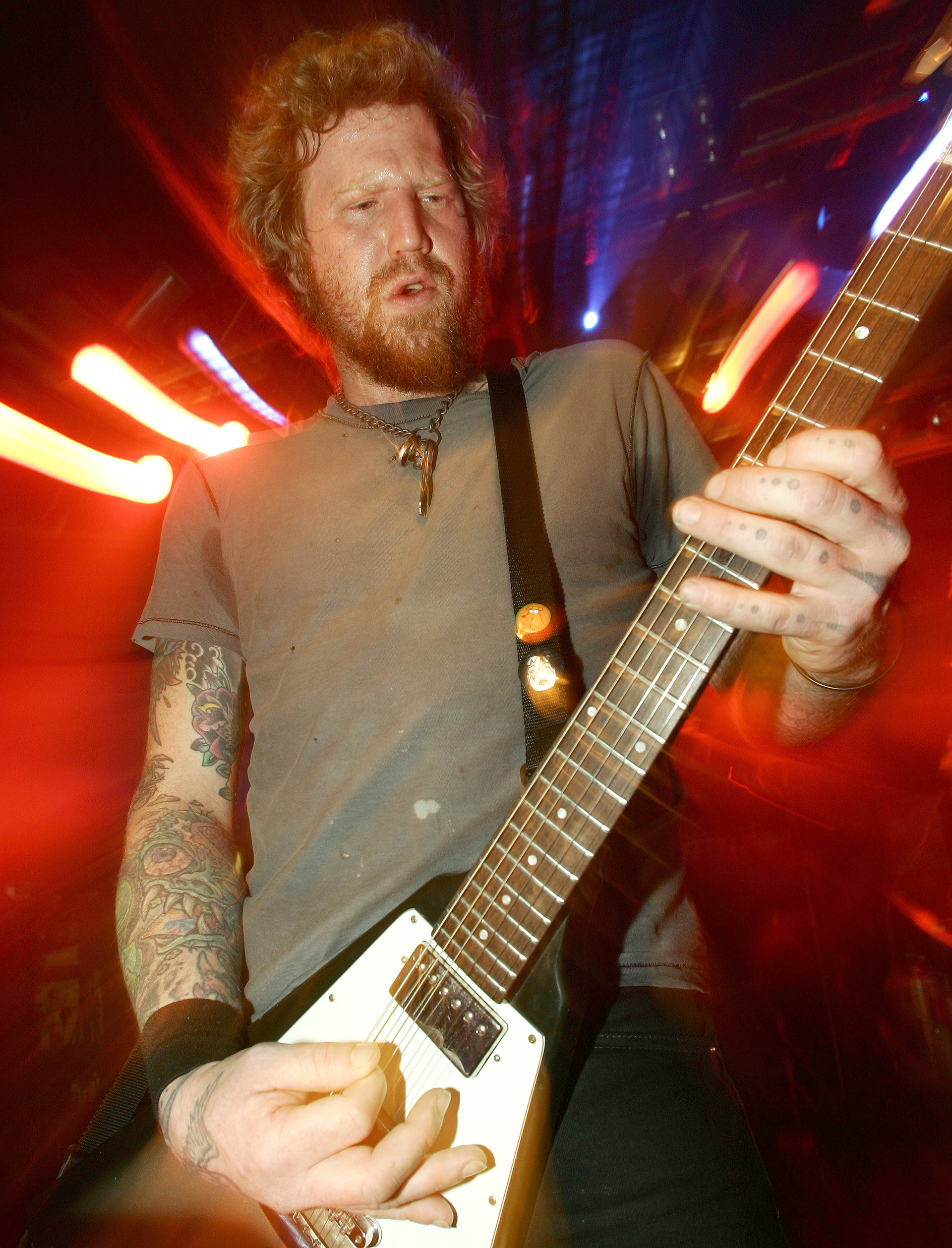
Hinds eventually recovered from the coma but suffered vertigo, dizziness and nausea for eight months afterwards. Meanwhile, Mastodon continued to work on Crack the Skye.
“Troy and I kept writing,” Kelliher says. “We were not sure what was going to happen, so we wanted to keep busy. We put together five or six songs, which were our vision of what Crack the Skye would be, though the songs we had were kind of in a different direction.”
That changed when Hinds returned home. “The doctors were like, ‘You need to just rest and chill.’ All he had was an acoustic guitar, so he ended up writing most of Crack the Skye on that — like all these crazy riffs and sections that are on the record. Once he came to practice, we had all these ideas floating around.”
That’s where O’Brien’s handiwork really came into play. The producer quickly took stock of Mastodon’s tendency to overwrite.
“Brendan was good at figuring out what we needed and what we didn’t. But the process was arduous.”
— Bill Kelliher
“Our past few records had really laid most of the groundwork for all the music,” Kelliher explains. “We would write tons of material, riffs… because you can always take stuff away when you’re recording, but it’s hard to add something new.
“Brendan was good at figuring out what we needed and what we didn’t. But the process was arduous.”
With Hinds still recovering at home, Kelliher, Sanders and Dailor began whipping his new songs into shape. “Brann, Troy and I had taken Brent’s riffs and tried to make them into songs,” Kelliher says. “They were like skeletons of songs and ideas. We kind of honed them all and spent a lot of time, just the three of us, because Brent was still recovering.
“And O’Brien was cutting up the songs, like, ‘What’s this riff? You don’t need that.’ We were like, ‘Oh, that’s my baby! That’s my riff!’ But that’s why you hire a producer.”

O’Brien’s methods proved critical to the song’s shape and sound.
“Brendan would record them in the way that we envisioned them as a four-piece, with him, live in the room. And then he would say, ‘All right, you guys go home. I’m going to chop it up in ProTools. Come in tomorrow, fresh.’
“We’d come in the next day, he’d have it all rearranged, and he would say, ‘Okay, listen to it now. Go out there and play it the way I arranged it.’ We were just like, ‘Wow!’
“It was a challenge, but we welcomed it. We knew it was going to be this epic album that could withstand the test of time.”
Recording at Southern Tracks had a lot to do with that. As O’Brien’s home base, the studio contained much of his equipment, including plenty of electric guitars and amps.
“I was just like a kid in a candy store. There’s all kinds of amps, and guitars, and the baritone guitar that’s on 'Ghost of Karelia.'"
— Bill Kelliher
“I was just like a kid in a candy store,” Kelliher says. “There’s all kinds of amps, and guitars, and the baritone guitar that’s on 'Ghost of Karelia' at the heavy part. I’d never played one before. I thought, Oh, this will really thicken up the sound.”
The producer himself played keyboards, adding a new sound to Mastodon’s template. “We’d never really used a keyboard before and were never in a world with those types of instruments, so it was a very experimental record,” Kelliher says. “There were a lot of prog elements going on with some of the soundscapes, and negative space.
“It was a less is more kind of approach, with ambient, droning guitars, 12-string guitars, and stuff like that. I was digging into more acoustic sounds and clean tones like I’d never done before, and I was using Fender amps and a Silvertone amp, like the ones from the Sears catalog. I kind of looked around and said, “Let me see… what’s the ugliest, weirdest-looking amp. I’m just going to plug into that. We’re going to use that.”
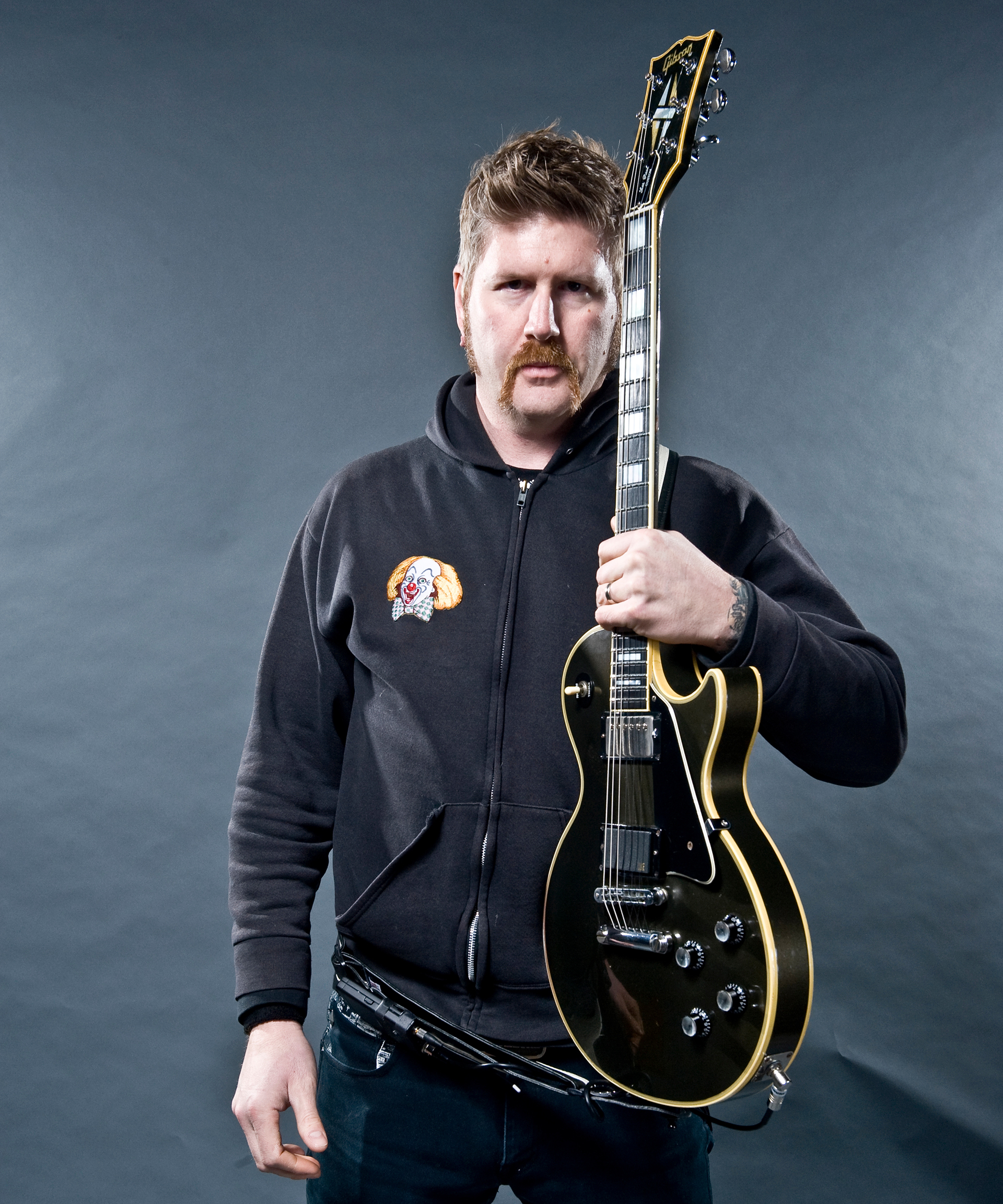
Crack the Skye’s success made a huge difference in Mastodon’s fortunes. Their next three albums — The Hunter, Once More ‘Round the Sun and Emperor of Sand — all reached Billboard’s top 10. “I felt like that was a real turning point in our careers,” Kelliher says.
But it also marked an irrevocable change in the band’s nature.
“After that record, things were never the same as far as all of us going into a studio together, sitting around, and tossing ideas around together,” he says. “That accident with Brent really changed not only him but the dynamic of the band. Honestly, I feel like that was the last record we did as a band that was complete.”
He hedges. “Well, not really 'complete,' but the most together as a team. On Crack the Skye, all of us are playing the songs in the studio together, writing together and really making a collaborative effort. I felt like that was the pinnacle of our career on that album as far as doing that.”
“I fucking hate most heavy metal. I don’t like a lot of it. There’s a lot of cookie-cutter bullshit out there."
— Brent Hinds
It’s unclear if Brent Hinds feels likewise. In 2015, six years after the release of Crack the Skye, he was quoted in Guitar Player as saying, “I’ve been trying to get Mastodon to not be such a heavy metal band because I fucking hate heavy metal, and I don’t want to be in a heavy metal band.”
He walked back those comments in 2017, saying his quotes were taken out of context. According to Hinds, he said, “I fucking hate most heavy metal,” adding, “I don’t like a lot of it. There’s a lot of cookie-cutter bullshit out there, in my opinion, and I don’t like it.”
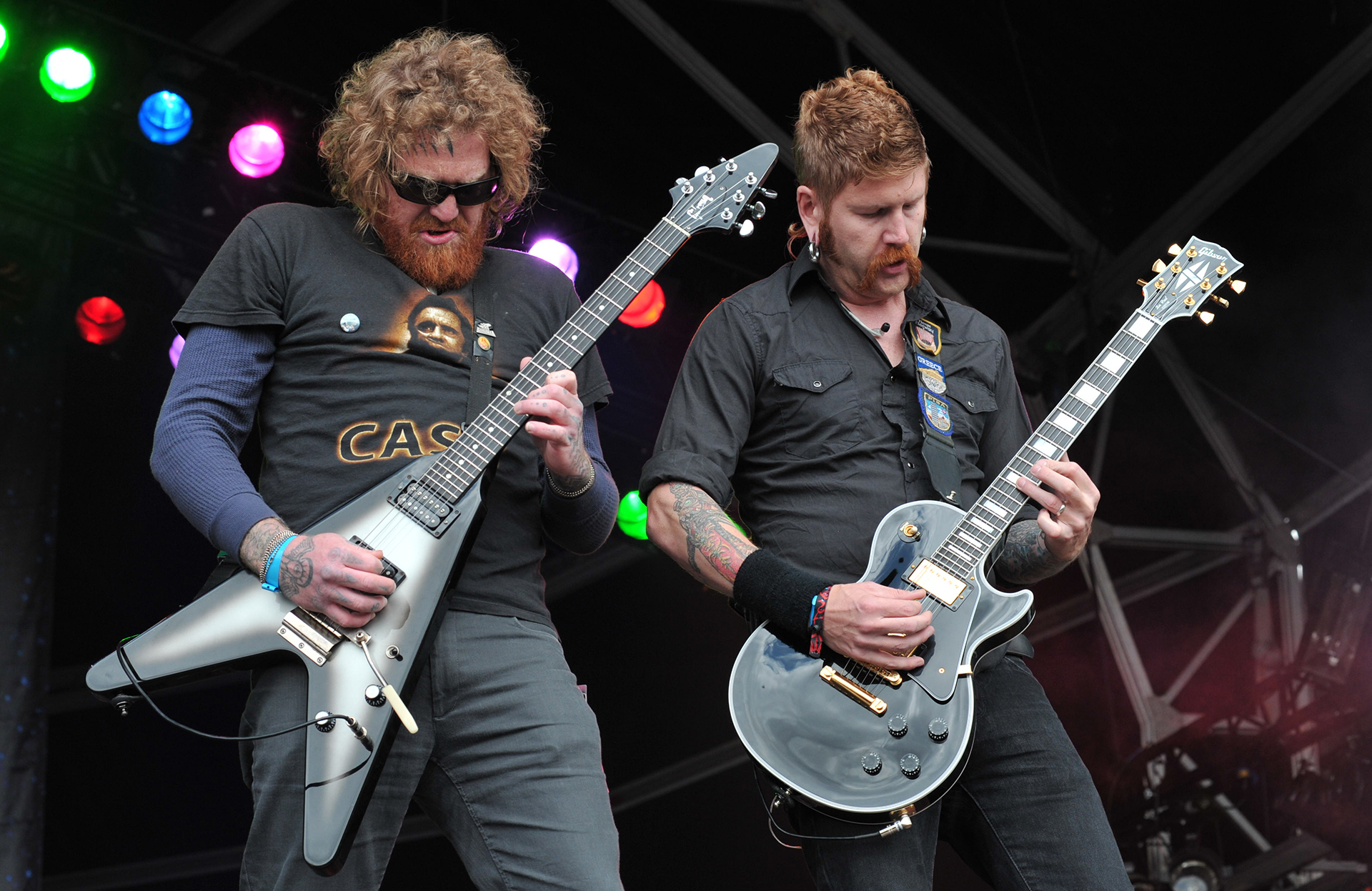
Whether Hinds was shooting from the hip, joking or something else, the reality is that times change, people evolve — and so do tastes. Kelliher agrees, saying, “Around the time of Crack the Skye, I was like, ‘Man, I’m a dad. I need to be home more, be around my kids, and see them grow up.”
As the guitarist puts it, “Life happens,” which is why, he says, things have changed for Mastodon since Crack the Skye.
“I’ve always said that each of our albums is like a picture of who we were, what we were doing, what we were thinking, what our influences were and what we were writing at the time," he explains. “It’s a snapshot of us in 2009. That was 15 years ago. It’s a benchmark to me, and a metric of music in 2009. It’s a great record.
“But it’s not like I sit around and ever listen to it,” he adds. “At the same time, when I go back and listen to a song, I’m never disappointed. I’m just like, Wow, this is exactly what we wanted to create: an album that stands the test of time, and when you put it on, it time-warps you back to that moment.”
Andrew Daly is an iced-coffee-addicted, oddball Telecaster-playing, alfredo pasta-loving journalist from Long Island, NY, who, in addition to being a contributing writer for Guitar World, scribes for Rock Candy, Bass Player, Total Guitar, and Classic Rock History. Andrew has interviewed favorites like Ace Frehley, Johnny Marr, Vito Bratta, Bruce Kulick, Joe Perry, Brad Whitford, Rich Robinson, and Paul Stanley, while his all-time favorite (rhythm player), Keith Richards, continues to elude him.
